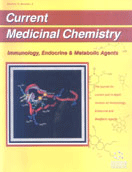Abstract
In fact sepsis remains a major cause of death in hospitalized patients. More than 750,000 cases of severe sepsis occur annually in the United States, and the mortality rate is about 30%. As a condition that disproportionately affects the elderly and is related to invasive and immunosuppressive healthcare, increase in the frequency of sepsis is anticipated. The complex pathophysiology of sepsis encompasses the interplay of pro and anti-inflammatory mediators, activation of inflammatory cells, disruption of coagulation, endothelial activation with injury, vasodilatation, and vascular hyporesponsiveness to vasoactive mediators that cause cardiac dysfunction, and cellular dysoxia. Despite the massive research effort over the past two decades to identify innovative therapies, current management of severe sepsis includes eradication of infection through source control and microbial therapy, aggressive and targeted shock resuscitation with fluid administration, correction of anemia, vasopressor support, modest inotropic therapy, and compulsive supportive care to manage organ dysfunction and to avoid complications. Novel therapeutic strategies include use of activated protein C (an endogenous protein that inhibits thrombosis and inflammation while promoting fibrinolysis), small doses of steroids (methylprednisolone) for long period, limiting the tidal volume in Acute Lung Injury / Acute Respiratory Distress Syndrome, an early goal-directed therapy, and a tight control of glycemia with insulin treatment even in non-diabetic patients. It has been demonstrated, in clinical trials, that these strategies can improve survival of septic patients.
Keywords: septic shock, infections, management
 1
1








